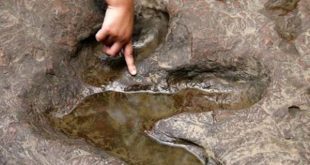 A method of combating bacteria, invented by a Malaysian graduate student, University of Melbourne, may save the lives of hundreds of thousands of babies every year
A method of combating bacteria, invented by a Malaysian graduate student, University of Melbourne, may save the lives of hundreds of thousands of babies every year
Malaysia Shu Lam, together with colleagues from the University of Melbourne have developed a method of combating superbugs, which successfully resist all known antibiotics. Perhaps this will be the biggest revolution since the discovery of penicillin.
A new method was yet tested only on laboratory mice, but in the long term it is a solution to the problem of superbugs, against which modern antibiotics are powerless.
The presence of such superbugs in the UN consider a fundamental threat to global health. According to statistics of the world health organization superbugs every year, killing more than 700 thousand people. According to some projections, by 2050 it will annually cause over 10 million deaths.
In the war between bacteria and antibiotics gradually start to win first state the doctors. Bacteria mutate and develop resistance to antibiotics. And this process is significantly faster than the opposite process of finding new antibiotics.
One of these superbugs is, for example, methicillin-resistant Staphylococcus aureus, responsible for many nosocomial infections causing sepsis and pneumonia. Doctors also fear that soon the list of superbugs can be attributed to gonorrhea, which is less effective drugs.
In the war against superbugs can not do without superweapons. Perhaps such was able to create a 25-year-old graduate student, University of Melbourne Shue Lam.
Magic star
Malaysian student of graduate school one of the leading Australian universities have developed a polymerized peptide, representing the structure of repeating chains of proteins in the form of a star, which is able to kill six different superbugs without the help of antibiotics, destroying their cell membrane. After that, the bacterium dies.
Method is called SNAPP (structural nanoinzheneriya antimicrobial peptide polymers).
The work of Lam were published in the prestigious publication Nature Microbiology.
Many experts were quick to call the discovery a true revolution comparable to the discovery of antibiotics. Some doctors believe that the development of Shu Lam will change the face of modern medicine.
Of course, to rejoice while early – Lam tested their method in mice, and to experiments with humans is still far away.
But the fact that it “stars” working in the lab already encouraging. Especially when you consider that during the experiments, all hostile bacteria are invariably killed. And their next generation showed new abilities to confront a squirrel, invented by Lam.
Unlike antibiotics, which “poison” the bacteria, often simultaneously attack a nearby healthy cell, polymeric peptides of Lam do not cause harm to the body. They directly attacked the bacteria to penetrate into them and destabilisateur their cell membranes.
See also: Health in the hi-tech style. 7 discoveries that will change medicine in the coming years
The peptides proved to be effective to destroy any bacterial infections in the body, ” says Lam. – Including those that had previously shown antibiotic resistance. The peptides are not toxic and do not cause harm to the body”.
The point is that these peptides are so large (up to 10 nm in diameter) that simply can not penetrate healthy cells in the body, highlights scientific Director Lam, Greg Qiao. This fundamentally distinguishes the development of Lam from other previous experiments in this direction.
Lam is not the first who tried to use peptides to combat superbugs, but above all the experiments were unsuccessful because of side effects for the patient.
The new era?
The results obtained in the laboratory allow us to conclude that the peptides Lam operate more efficiently and selectively than all the known means against bacteria, says Cyril Boyer from University of South Wales in Australia. But, she said, too early to rejoice, because the front of long years of clinical trials.
Boyer believes that Lam managed to create his amazing method because of his creative thinking. At that time, as most research in this area is dedicated to creating new antibiotics, Lam chose a completely different way, says Boyer, and he can lead mankind into the era of “post-antibiotic”.
Overreliance on antibiotics has led humanity to a medical crisis, bacteria and viruses have learned to resist antibiotics and are now killing hundreds of thousands ldey annually
Overreliance on antibiotics has led humanity to a medical crisis, bacteria and viruses have learned to resist antibiotics and are now killing hundreds of thousands of people every year
On the occurrence of this era have been dreaming physicians, are increasingly faced with superbugs. Their appearance mankind owes its overreliance on antibiotics. Their use is literally for every “sneeze” has led to the emergence of strains resistant to any drugs.
His contribution made and other controversial decisions, such as antibacterial soap. It is not effective enough to combat bacteria, but it helps to become more resistant to drugs. The U.S. government is only now aware of the problem and need to remove from the market all the varieties of soap with such properties.
About this danger warned the discoverer of the first antibiotic penicillin by Alexander Fleming.
See also: British doctors called the fight against cholesterol the greatest mistake of medicine of all time
In his speech at the ceremony of awarding the Nobel prize in 1945, he in particular said: “There is a risk that uninformed people may take antibiotics too often and in the wrong doses. As a result, the bacteria in his body can at some point encounter a high enough concentration of antibiotics. This will give the bacteria opportunity to develop resistance to them.”
Mankind has not listened to Fleming. Each year, killed more than 700 thousand people. The enormity of the situation is that almost a third of all victims of superbugs – newborn babies.
By 2050, the annual death rate from superbugs may be 10 million people, and total damage to the economy may exceed $100 trillion. Experts call this problem the medicine prices in slow motion”.








